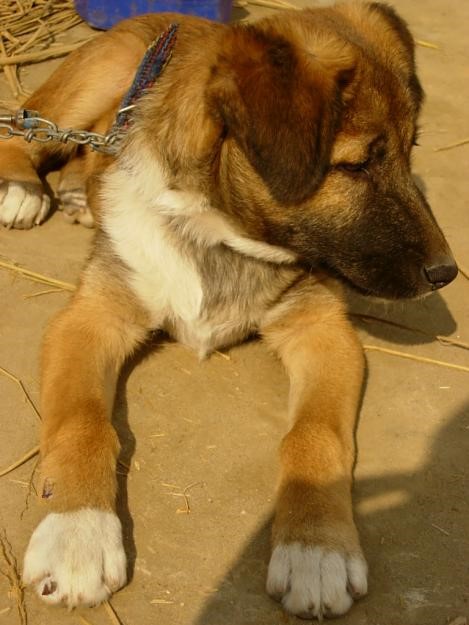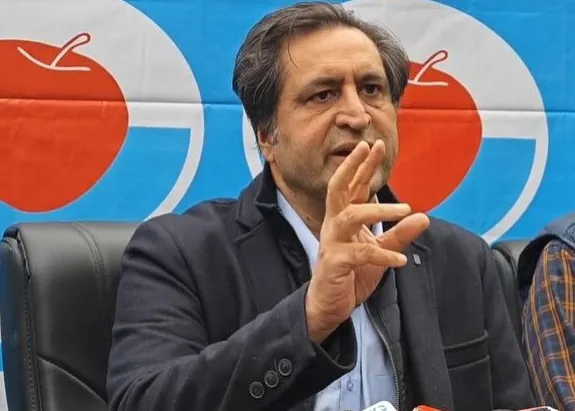A Proverb That Stirs Curiosity
By: Zulfikar Kashmiri | 12 September 2025
Language is more than words—it’s history, emotion, and humor wrapped in sound. In Kashmir, a land of mountains, poetry, and traditions, proverbs are a living heritage. They aren’t just sayings; they are mirrors of society, reflecting values, relationships, and even prejudices.
Among the hundreds of witty, wise, and sometimes biting Kashmiri proverbs, one stands out for its peculiar harshness:
“Zamtoor go bartaluk hoon.” (Translation: The son-in-law is a dog.)
At first glance, it sounds offensive—why compare a son-in-law to a dog? But, like most folklore, the proverb has layers of meaning, cultural nuance, and social context.
This article takes you on a 5,000+ word journey into Kashmiri homes, marriage traditions, and social dynamics to understand why this proverb exists, how it evolved, and what it means today.
The Place of the Son-in-Law in Kashmiri Society
To understand the proverb, we must first understand the social fabric of Kashmiri families.
Family Structure in Kashmir
Traditionally, Kashmir has been a patriarchal yet family-oriented society. Families live in close-knit units, often with multiple generations under one roof. Marriage is not just about two individuals—it’s a union of families, customs, and honor.
-
The Bride’s Family: Considered guardians of dignity.
-
The Groom’s Family: Carries pride and authority.
-
The Son-in-Law (Zamtoor): A special yet awkward figure—respected but also teased.
Respect Mixed with Humor
The son-in-law is both honored as the groom and mocked as an outsider. This duality is what fuels the proverb.
In Kashmiri tradition, during wedding feasts, the son-in-law is often pampered with special dishes (wazwan delicacies) but also joked about behind his back.
Thus, the proverb paints the Zamtoor as a dog—not to demean him completely, but to remind everyone that he is both welcomed and restrained, included yet slightly excluded.
Why a Dog? Symbolism in Kashmiri Proverbs
Why compare the son-in-law to a dog? The metaphor carries symbolic weight.
-
A Dog is Familiar Yet Outsider
Just like a household dog is loved but never fully family, the son-in-law is welcomed but always remains a guest in the bride’s parental home. -
Always Hungry (for Affection & Hospitality)
Culturally, the son-in-law is expected to be treated lavishly—fed the best dishes, given the best seat. This constant demand for attention may have led to the “dog” metaphor. -
Dependent Yet Respected
A dog is loyal, but dependent. A son-in-law in traditional society often depends on the in-laws’ generosity during early visits. -
Teasing as Social Humor
Kashmiris are known for their wit. Calling the son-in-law a dog is light-hearted mockery, not outright insult.
Social Function of the Proverb
Proverbs aren’t just sayings—they serve social functions.
Humor as Social Glue
In Kashmiri weddings, humor eases the tension. Mocking the son-in-law brings laughter to feasts and gatherings.
Reinforcing Boundaries
The proverb reminds everyone: the son-in-law is respected, but he must also remember his place—not too entitled, not too intrusive.
Balancing Power
Marriage links two families. By joking about the son-in-law, the bride’s family softens power dynamics—showing warmth without submission.
Examples from Kashmiri Weddings & Traditions
-
Wazwan Hospitality: A Kashmiri son-in-law is served the choicest pieces of rista (meatballs), gushtaba, and kebabs. The pampering sometimes feels excessive—fueling jokes.
-
First Visit Ritual (Phirsaal): When the groom visits his in-laws after marriage, he is showered with gifts and food. People often whisper: “Ah, the zamtoor has come—like a hungry dog.”
-
Folk Songs: Some Kashmiri folk songs humorously mock sons-in-law for being spoiled by their wives’ families.
Comparative Proverbs: Sons-in-Law Across Cultures
Interestingly, the mocking of sons-in-law isn’t unique to Kashmir.
-
Punjabi Saying: “Damaad to ghar da rajah” (The son-in-law is the king of the house). Here, the tone is sarcastic.
-
Japanese Proverb: “The son-in-law eats more than he earns.”
-
Irish Humor: Sons-in-law are often teased as freeloaders.
Thus, Kashmir’s “zamtoor” proverb is part of a global pattern of in-law humor.
Changing Times: Is the Proverb Still Relevant?
In modern Kashmir, social roles are shifting:
-
Nuclear Families: Sons-in-law and daughters often live separately, reducing the “guest” dynamic.
-
Education & Equality: Men and women contribute equally, changing financial and social expectations.
-
New Attitudes: Younger generations may find the proverb outdated or disrespectful.
Yet, in rural areas and traditional families, the saying is still alive—more as humor than hostility.
A Socioeconomic Reading of the Proverb
Beyond humor, the proverb reveals much about economy and power in Kashmiri society.
-
Hospitality Economy: Lavishing sons-in-law reflects the cultural value of mehmaan-nawazi (hospitality).
-
Gender Dynamics: The proverb shows the awkward balance of patriarchy—the son-in-law is powerful through marriage but mocked to check his authority.
-
Class Factor: In poorer families, feeding a son-in-law lavishly is a financial burden—hence, calling him a “dog” highlights economic strain.
The Proverb in Modern Storytelling
Today, “Zamtoor go bartaluk hoon” finds life in:
-
Kashmiri memes & social media jokes
-
Wedding skits & local theater
-
Academic discussions on folklore
Writers, poets, and comedians use it to discuss gender roles, family expectations, and the humor in everyday life.
FAQs: Understanding the Proverb
Q1: What does “Zamtoor go bartaluk hoon” mean?
It means “The son-in-law is a dog.” It’s a Kashmiri proverb used humorously to describe the pampered yet outsider status of a son-in-law.
Q2: Is it an insult?
Not necessarily. It’s usually meant as a joke or playful mockery, not serious abuse.
Q3: Do people still use it today?
Yes, though less often in urban areas. It remains common in rural Kashmiri weddings and family jokes.
Q4: Why compare to a dog?
Because a dog is loved but always treated as an outsider—just like the son-in-law in his in-laws’ house.
Q5: Does it reflect patriarchy?
Yes, it reflects old gendered traditions where marriage linked families but also created power tensions.
Bottom-Line: A Proverb of Love, Laughter, and Layers
“Zamtoor go bartaluk hoon” is more than a harsh phrase. It’s Kashmir’s way of laughing through social tension.
It shows how families balance hospitality with humor, respect with restraint, and tradition with transition.
Even as society evolves, this proverb remains a window into Kashmiri wit and wisdom—a reminder that sometimes, even in-laws must learn to laugh at themselves.



